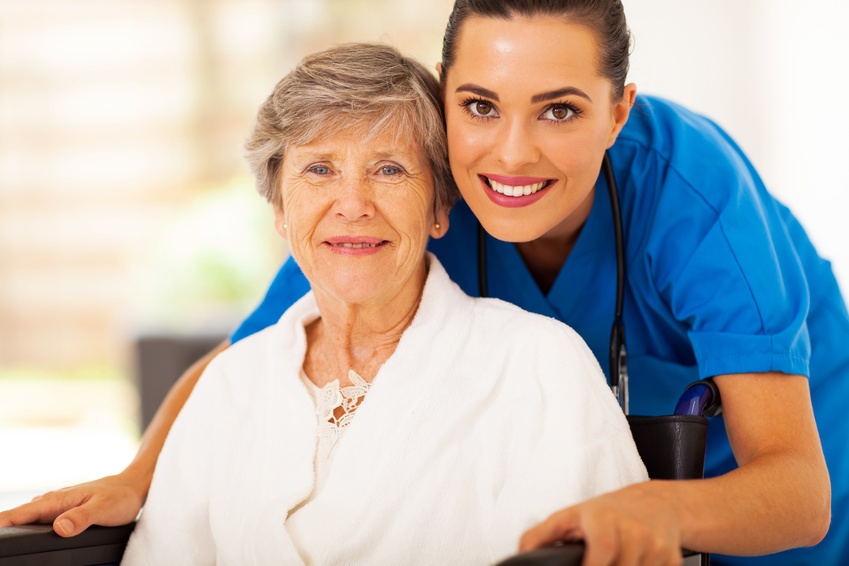There's a great need for quality, dignified, person-centered elder care in Cincinnati, Louisville and the surrounding Tristate region right now.
Part of the boost in demand for professional senior caregivers is due to the Baby Boom generation's having reached peak retirement. But the labor crunch in senior healthcare isn't expected to subside as the Boomers' numbers diminish.
It's not often, on this blog, that we write specifically for Millennials. Most people born after 1980 haven't been focused on retirement or senior care issues, but that's changing.
The vanguard of the Millennial generation is now in its mid-to-late 30s. Some are already thinking about senior care options for their Boomer parents, who are now in their late 60s to early 70s. And, now that their children are adolescents, they're beginning to think ahead to their own retirement.
According to AARP, a surprising number of Millennials are already providing in-home care to parents or grandparents with chronic illnesses, dementia or Alzheimer's.
“Oftentimes Millennials get sort of slammed," LeadingAge communications VP Amanda Marr told Knoxville, Tennessee NPR affiliate WMOT, by "the stereotype of the Millennial."
"What people don’t realize is 10 million of them are being very self-sacrificing and caring for someone else,” she added.
"What people don’t realize is 10 million of them are being very self-sacrificing and caring for someone else,” she added.
To them, and for members of the generation who may find themselves caregiving for a parent in the near future, we offer these tips:
1. Focus on efficiency.
Many young adult-to-middle-aged caregivers work full-time jobs and are raising their own children. A large portion of them are single parents, to boot.
That kind of schedule can quickly become unsustainable, AARP advised, especially given that most are rendering more than 20 care hours a week — the equivalent of a second, part-time job.
If you find yourself in similar straits, how can you balance everything?
How can you render effective care for your loved one, meet your children's needs, maintain your source of income and still manage to have enough time left for maintaining your health, for routine self-care and for personal relationships?
It's all about time management. Life is going to have to become fairly structured if you're going to make a go of it. Devise a daily schedule. Stick to it. And make sure to schedule in downtime for yourself.
2. Take advantage of the resource-conserving benefits of a multigenerational household.
Some caregivers opt to combine households with relatives who need care to conserve resources and save time.
If their older parents own their homes, for example, the adult child may move his or her own family in, to save on commute time, housing and utility costs, and provide personal care to the parent in exchange. This can alleviate childcare burdens and costs, too.
A homebound grandparent, for example, might look after the small grandchildren during the daytime, while the adult child is away at work, and provide free babysitting duties when the adult child needs a night out for R&R.
He or she might contribute income — Social Security, pension, etc. — for the benefit of the entire household. That could alleviate some financial pressure on Millennial provider, who may not only struggle to provide for themselves and their families, but to pay off large student loans.
The senior could even claim the adult child and his/her grandchildren as dependents, or vice versa, to maximize tax savings (depending on the situation and subject to federal, state and local tax laws).

3. Avail yourself of technology.
Your smartphone can allow you to provide a whole host of caregiving duties from your workplace, while you're out running errands or driving the kids to activities, or just from another room in the house.
Many smart devices for the home can now be controlled through apps. While out buying groceries, say, you could monitor the front door for activity and verify that your mother has received her lunchtime Meals on Wheels delivery.
You could start dinner cooking in the crockpot or oven. You could adjust the thermostat for your mom if she complains that she's cold.
You could remotely set an alarm clock reminder for her to take her daily medications, Skype with her at regular intervals to check in, and remotely schedule appointments with her healthcare providers.
You could even monitor her vitals through app-connected wearables, and (for caregivers to diabetics) receive her blood pressure and glucometer results in real-time, as she checks her stats throughout the day.
For Millennial caregivers of seniors in residential care, apps like How's Mom (which Episcopal Retirement Services co-developed) can keep you apprised of your loved one's health status and put you in direct contact with his or her skilled nursing care provider.
4. Remember to care for yourself, too.
Many caregivers completely submerge themselves in providing for others and forget to care also for themselves.
If you forget to care for your own needs, you could develop physical exhaustion, depression and/or empathy fatigue. That could jeopardize not only your safety, but also the safety of the older loved one for whom you provide care.
Schedule in breaks. Make sure you have at least a night or two to yourself every week, or a full day off from work and caregiving. A couple of times a year, arrange a week or two of in-home nursing support so that you can take a vacation and decompress. (Contact Living Well Senior Solutions for help making connections with healthcare partners.)
Try joining an online caregiver support forum, which could give you a helpful avenue for venting and for finding new caregiving tips and support resources.
Attend caregiver support group meetings. Our caregiver support group, for instance, meets monthly and is open to all caregivers in the Tristate.
Whatever you do, don't allow yourself to become lost in the process of providing care to your senior loved one. Use the tips above to provide smarter, more effective personal care — and save some time and energy for your own needs.













